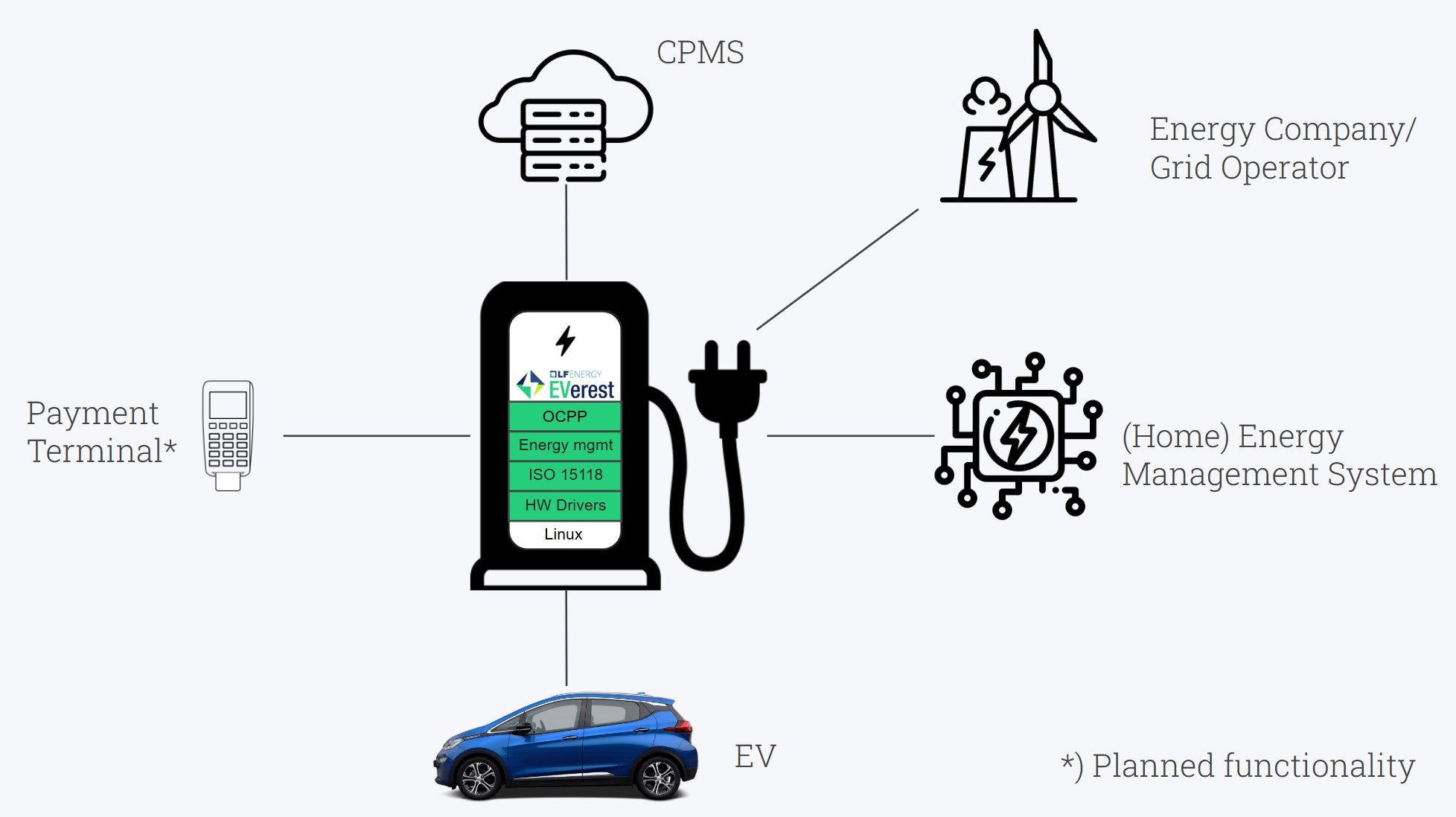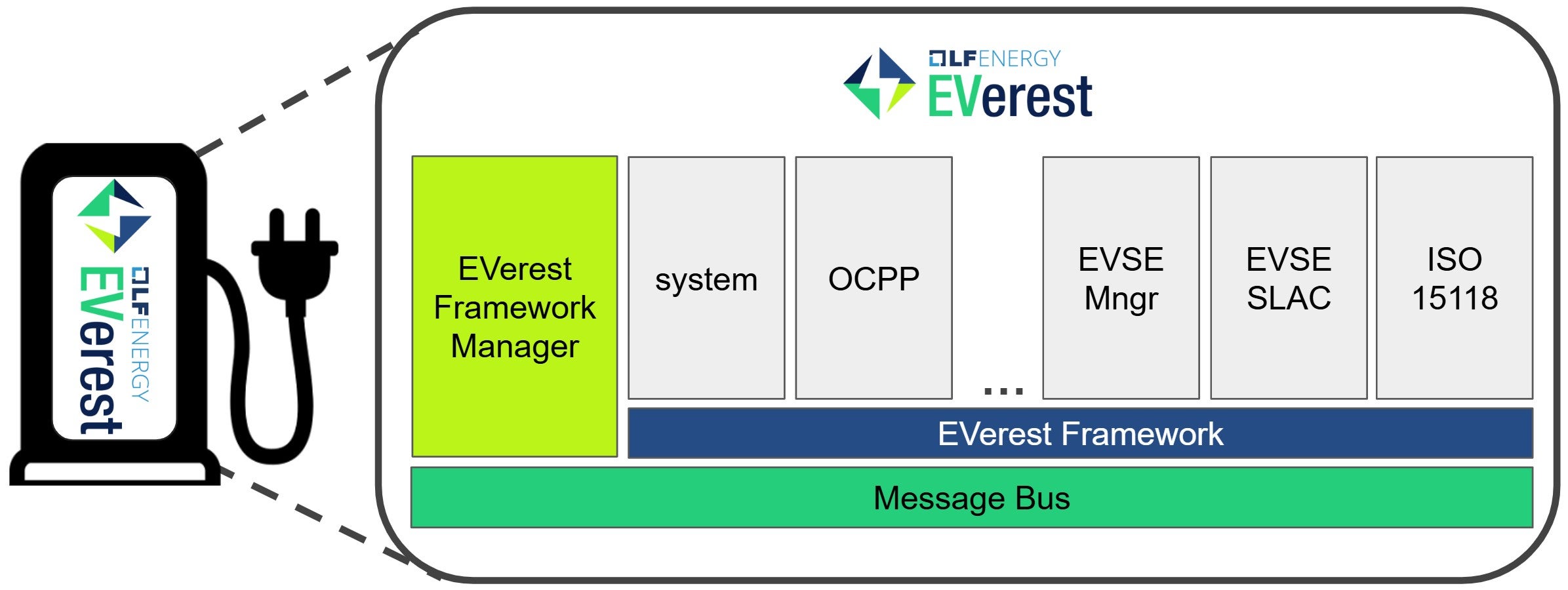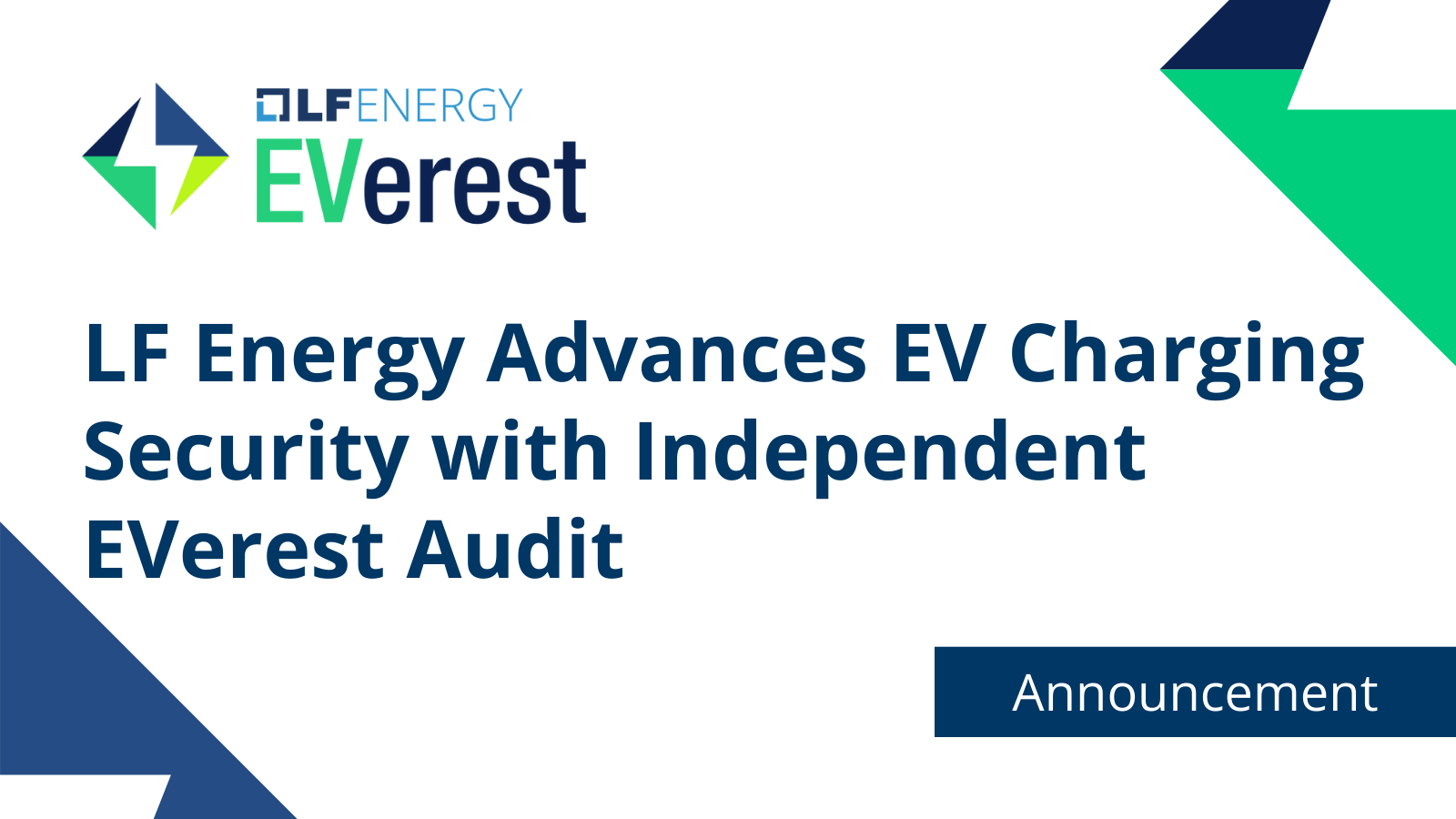Open source firmware stack for standards-compliant, interoperable, and secure EV charging.
EVerest is the open source firmware stack for EV charging stations. By digitally abstracting the complexity of multiple standards and use cases, EVerest runs on any device, from unmanaged AC home chargers to complex multi-EVSE satellite public DC charging stations with battery and solar support. EVerest supports all the standards and protocols needed for standards-compliant, interoperable and secure charging. In other words, EVerest does the hard work of translating standards into working code to ensure that every car works with every charger with every charging app and network.

EVerest in the charging system context
EVerest is able to manage communication between different players:
- Car
- Local energy generation & batteries Adjacent chargers (WIP)
- Grid (including specific grid constraints)
- Cloud backend / payment User (interface)
The EVerest project speeds up the emerging change to e-mobility by utilizing all the open source advantages for the EV charging world. It will enable new features for local energy management, PV integration, grid friendliness, and many more. By leveraging EVerest, you free up developers to focus on adding higher value to your product.

EVerest architecture
TSC Organizations
 |  |  |
|---|
Other Contributing Organizations
- ABB Ltd
- Accenture
- Alexandria University
- Alfen
- Arizona State University
- dSPACE
- Eaton
- Genesis Motor America
- IoT.bzh
- National Renewable Energy Laboratory (NREL)
- Paderborn University
- Promwad
- RWTH Aachen University
- S44
- Siemens AG
- Tempo Automation
- Tesla, Inc.
- ThoughtWorks, Inc
The full and updated list of contributing organizations (based on public data) can always been found at the LFX insights site.
EVerest Case Studies
- Seeed Studio Develops Open Source EV Charging Product Thanks to Zephyr RTOS and LF Energy EVerest
- Park&Charge and Qwello Revitalize EV Chargers with LF Energy EVerest
EVerest Videos
Technical Introduction to EVerest: The Operating System for EV Charging Infrastructure
Open EV Charging Summit 2024: How to build a DC charger with EVerest
Open EV Charging Summit: Joint Office of Energy & Transportation Applied Interoperability Project
Recent EVerest News
Upcoming Meetings
View the calendar of all LF Energy events
Project Special Interest Group: Edge Interoperability and Flexibility
Project Lifecycle Stage: Early Adoption
The EVerest project was initiated by PIONIX GmbH in 2020.




Webinar: EVerest for Production: Accelerating EV Charger Development w/ Industrial-Grade Open Stack
January 15, 2026 3:51 pm